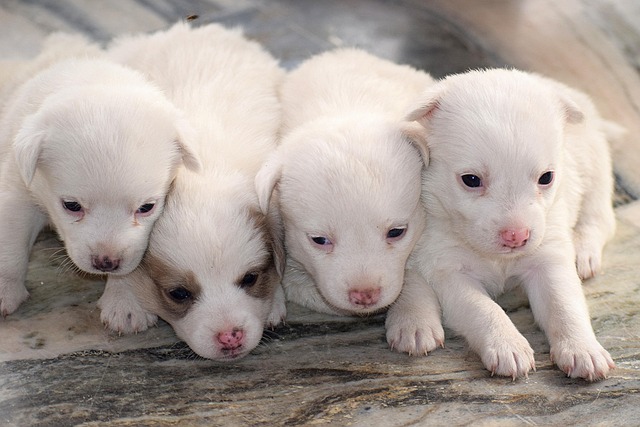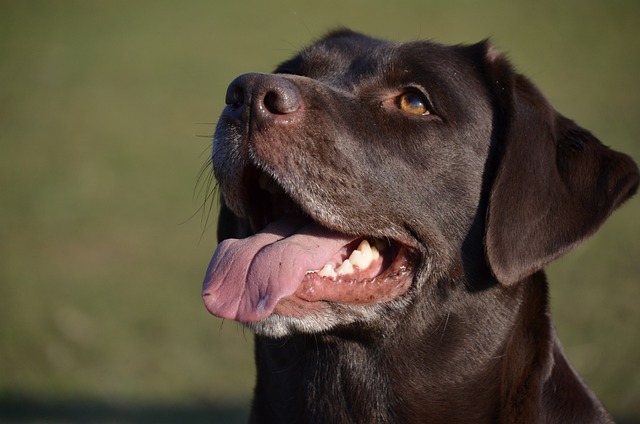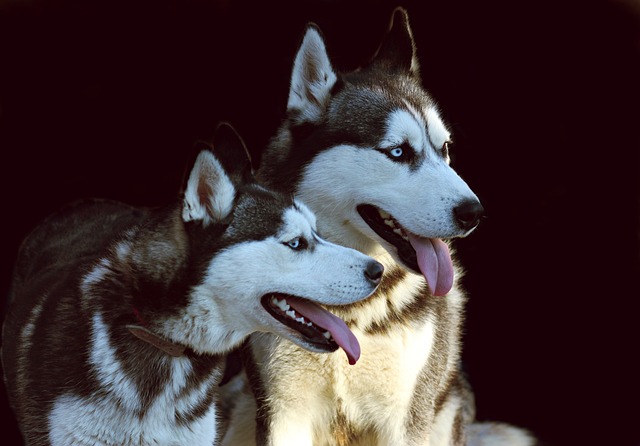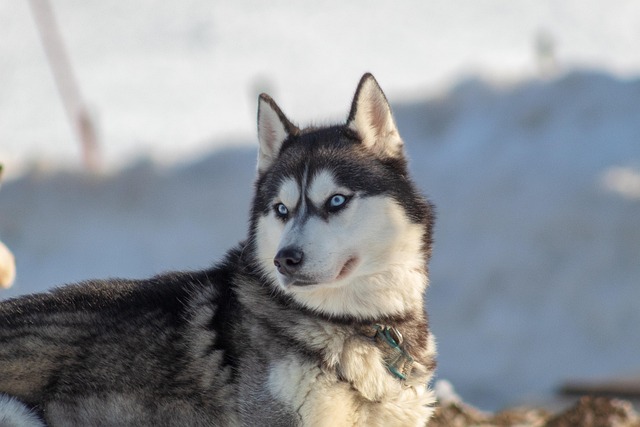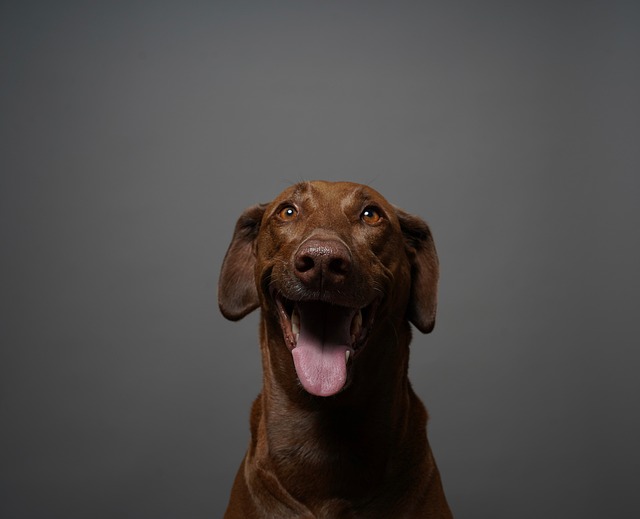In our journey of caring for the health of dogs, parvovirus is always a worrying existence. Unvaccinated dogs are like unarmed warriors on a battlefield where the virus is rampant, facing huge risks. So, can unvaccinated dogs really get parvovirus? The answer is yes, and the possibility is quite high.
Parvovirus, the full name of which is canine parvovirus (CPV), is a highly contagious virus that is extremely harmful to the health of dogs. It is like a cold killer, mainly attacking the gastrointestinal tract and immune system of dogs. This virus is very tenacious and can survive in the environment for months or even years. It is common in places where dogs gather, such as pet hospitals, kennels, parks, etc. As long as a dog infected with parvovirus has been there, the virus may remain and wait for the next "prey".
For unvaccinated dogs, their bodies have no defense against parvovirus. The role of the vaccine is like equipping the dog's immune system with precision-guided missiles, which can quickly identify and eliminate viruses when they invade. For unvaccinated dogs, the immune system is like an unguarded castle when facing parvovirus, and the virus can enter directly. When dogs are young, their immune systems are not yet fully developed. At this time, if there is no protection from vaccines, the chance of infection with parvovirus rises sharply. Many puppies are lively and active, and like to sniff and lick everything around them with their noses, which makes them very susceptible to parvovirus in the environment. Once in contact, they may be infected.
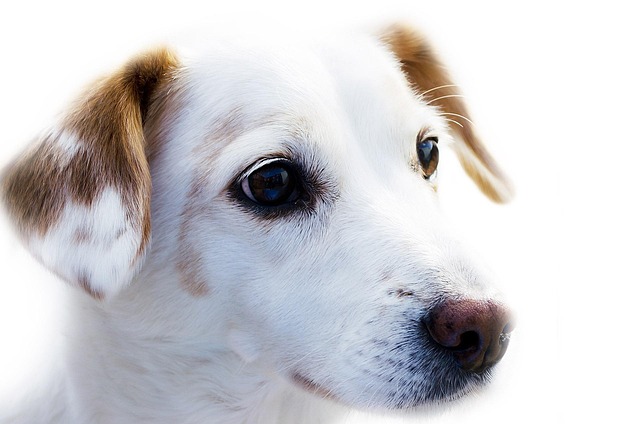 When unvaccinated dogs are unfortunately infected with parvovirus, the pain they suffer is heartbreaking. The most obvious symptoms are usually manifested in the gastrointestinal tract. Dogs will vomit frequently, which may be just some undigested food at first, and then develop into yellow-green liquid, which is a sign of serious damage to the gastrointestinal tract caused by the virus. Diarrhea is also a common symptom, and the feces are usually foul-smelling and paste, and even contain blood in severe cases. Due to frequent vomiting and diarrhea, dogs will quickly become dehydrated, weak, listless, and their bright eyes will become dull and they will no longer be as curious about the things around them as usual. They may curl up in a corner, unwilling to move, and make weak groans, as if telling their owners about their pain.
When unvaccinated dogs are unfortunately infected with parvovirus, the pain they suffer is heartbreaking. The most obvious symptoms are usually manifested in the gastrointestinal tract. Dogs will vomit frequently, which may be just some undigested food at first, and then develop into yellow-green liquid, which is a sign of serious damage to the gastrointestinal tract caused by the virus. Diarrhea is also a common symptom, and the feces are usually foul-smelling and paste, and even contain blood in severe cases. Due to frequent vomiting and diarrhea, dogs will quickly become dehydrated, weak, listless, and their bright eyes will become dull and they will no longer be as curious about the things around them as usual. They may curl up in a corner, unwilling to move, and make weak groans, as if telling their owners about their pain.
In some severe cases, parvovirus can also attack the dog's heart muscle, causing myocarditis parvovirus infection. This is especially common in puppies, and the damage to myocardial cells by the virus can be fatal. Dogs infected with myocarditis parvovirus may suddenly experience symptoms such as difficulty breathing and abnormal heartbeat, and may even die of heart failure in a short period of time, leaving the owner unprepared and in great grief.
In the face of such a terrible parvovirus, we are not helpless. Prevention, especially vaccination, is the most effective way to protect dogs from parvovirus. Puppies can generally start receiving the first parvovirus vaccine at 6 to 8 weeks of age, and then need to be vaccinated multiple times according to the prescribed immunization schedule to ensure that the immune system can produce enough antibodies. Adult dogs also need regular vaccinations to maintain their body's resistance to parvovirus. Every time you take your dog for vaccination on time, you are building a solid line of defense for their health.
In addition to vaccination, good feeding management and hygiene habits are also crucial. Try to avoid letting unvaccinated dogs go to places where there are densely populated dogs and the sanitary conditions are unknown. Keeping the dog's living environment clean and regularly disinfecting doghouses, toys, etc. can effectively reduce the breeding and spread of viruses. When we take dogs out, we must always pay attention to their behavior and prevent them from coming into contact with items that may be contaminated by the virus. Every small move may become a key factor in protecting the dog's health.
Unvaccinated dogs are at a very high risk of contracting parvovirus, and once infected, they will suffer great pain and even face life-threatening dangers. As dog owners, we shoulder the responsibility of protecting their health. By vaccinating dogs on time and giving them careful care and love, we can minimize the chances of dogs being infected with parvovirus and let them grow happily in a safe and healthy environment. Don't let our negligence become a hidden danger to the dog's health. Let us take action to safeguard the happy life of dogs.
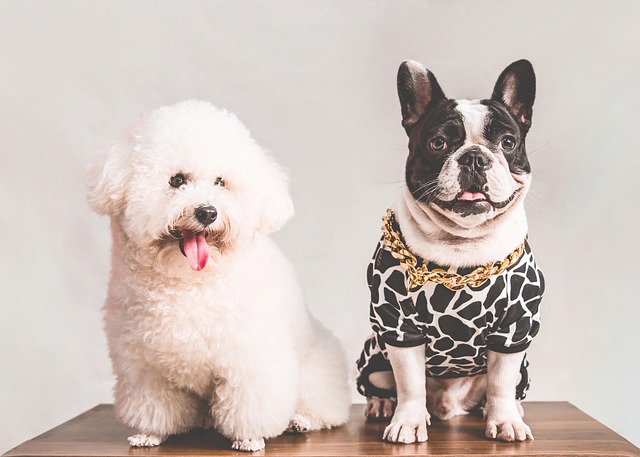
 When unvaccinated dogs are unfortunately infected with parvovirus, the pain they suffer is heartbreaking. The most obvious symptoms are usually manifested in the gastrointestinal tract. Dogs will vomit frequently, which may be just some undigested food at first, and then develop into yellow-green liquid, which is a sign of serious damage to the gastrointestinal tract caused by the virus. Diarrhea is also a common symptom, and the feces are usually foul-smelling and paste, and even contain blood in severe cases. Due to frequent vomiting and diarrhea, dogs will quickly become dehydrated, weak, listless, and their bright eyes will become dull and they will no longer be as curious about the things around them as usual. They may curl up in a corner, unwilling to move, and make weak groans, as if telling their owners about their pain.
When unvaccinated dogs are unfortunately infected with parvovirus, the pain they suffer is heartbreaking. The most obvious symptoms are usually manifested in the gastrointestinal tract. Dogs will vomit frequently, which may be just some undigested food at first, and then develop into yellow-green liquid, which is a sign of serious damage to the gastrointestinal tract caused by the virus. Diarrhea is also a common symptom, and the feces are usually foul-smelling and paste, and even contain blood in severe cases. Due to frequent vomiting and diarrhea, dogs will quickly become dehydrated, weak, listless, and their bright eyes will become dull and they will no longer be as curious about the things around them as usual. They may curl up in a corner, unwilling to move, and make weak groans, as if telling their owners about their pain. 